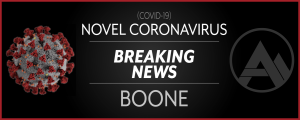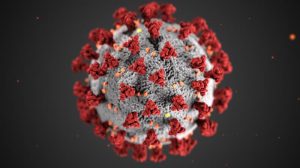COVID-19 means new normal for funerals, after-life plans
May 17, 2020
With the number of cases escalating and deaths rising, families of COVID-19 victims are adjusting to a new normal as after-life plans take on new meaning and risk.
”We have been and are continuing to make preparations so that if we do see an escalation in the number of deaths, we are ready to respond and serve families,” Justin Baxley, vice president for Hankins and Whittington Funeral Service said.
In North Carolina there are 18,512 confirmed cases, 659 deaths, and 99 counties are affected by COVID-19, according to the NCDHHS.
According to the Centers for Disease Control and Prevention, although COVID-19 is a new disease, the virus likely spreads primarily through respiratory droplets produced when an infected person coughs or sneezes. These droplets can land in the mouths of people who are nearby or possibly be inhaled into the lungs. This type of spread is not a concern after death, according to the CDC.
However, the CDC made it clear this is not an indication that people should consider touching someone who has died from COVID-19. Acts such as kissing, washing and shrouding should be avoided at all costs.
”It’s hard enough to experience a death. It’s even more difficult when a family is not able to put the traditions in place that normally surround a death and bring comfort in that time,” Baxley said.
According to the CDC, decedents can be buried, embalmed or cremated. Funerals and visitation services can also be held, but all funeral home workers must follow a routine infection prevention when handling a decedent.
”The biggest challenge is education. There’s a lot of fear surrounding what’s happening right now,” Baxley said.
Baxley said although a person may not have passed from COVID-19, family and friends must still follow the procedures set in place by the state.
”We’re seeing a significant increase in the number of families planning their funeral arrangements right now,” Baxley said.
Counties with the highest number of cases include Mecklenburg County with 2,591 Wake County with 1,212 and Durham County with 986 cases.
Protect yourself with these preventative measures:
- Frequent hand washing
- Staying home when you’re sick
- Keeping distance from others who are sick
- Avoiding touching your face
- Cleaning and disinfecting high touch surfaces in common areas like doorknobs, remotes, light switches, tables and handles
COVID-19 signs & symptoms:
- Fever
- Cough
- Shortness of breath
If you are concerned about symptoms you might be experiencing, you can contact Student Health Service at (828) 262-3100 or AppHealthCare at (828) 264-4995, ext. 0.
Those at higher risk for severe illness include:
- Adults over the age of 65
- Individuals with high-risk or underlying health conditions like heart disease with complications, chronic lung disease, moderate to severe asthma, diabetes, renal failure or liver disease, or severe obesity (body mass index of 40 or higher)
- Individuals with weakened immune systems
- Individuals who live in a nursing home or long-term care facility












